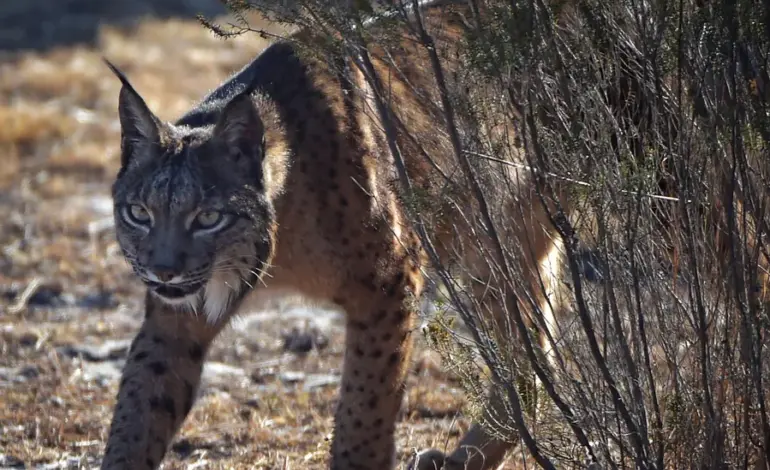Rare All-White Iberian Lynx Spotted in Spain, Conservation Milestone Achieved

A rare all-white Iberian lynx has been spotted in the mountains of Jaén, Spain, marking a significant milestone in wildlife conservation. This sighting is believed to be the first documented instance of an all-white individual of this species, previously considered mythical due to its extreme rarity. The discovery has sparked celebration among conservationists who have worked diligently to bring the Iberian lynx back from the brink of extinction.
Wildlife photographer Angel Hidalgo captured the remarkable footage, showcasing the lynx’s distinct white coat alongside its characteristic features, including sharp eyes and dark ear tufts. Hidalgo expressed his excitement about the find, stating, “I’ve been setting up cameras for years, with many failed attempts and long hours of work. But this time, nature gave me something truly unique,” according to NDTV.
Experts have confirmed that the lynx exhibits a condition known as leucism, which results in partial loss of pigmentation. Unlike albinism, which leads to a complete lack of color and affects the eyes, leucism allows the animal to retain normal eye pigmentation while appearing lighter in color. This genetic anomaly contributes to the lynx’s striking appearance.
The Iberian lynx is already one of the world’s most endangered cat species, with efforts in recent years helping to stabilize its population. The recent sighting serves as a testament to these successful conservation initiatives, which have included habitat restoration and protective legislation.
Given the lynx’s vulnerability, officials have opted not to disclose the exact location of the sighting to safeguard the animal from potential threats. The event has not only captivated the local community but has also highlighted the importance of ongoing conservation efforts in preserving such unique wildlife.
This sighting comes at a time when the Iberian lynx population has shown signs of recovery, with estimates suggesting there are now approximately 400 individuals in the wild, a significant increase from just a few dozen in the early 2000s. Conservationists emphasize the need to continue protecting this species and its habitat to ensure its survival for future generations.
The all-white Iberian lynx serves as a powerful symbol of nature’s resilience and the impact of dedicated conservation work. As researchers and wildlife enthusiasts continue to monitor the population, the hope remains that sightings like this will inspire further efforts to protect and restore the natural world.






